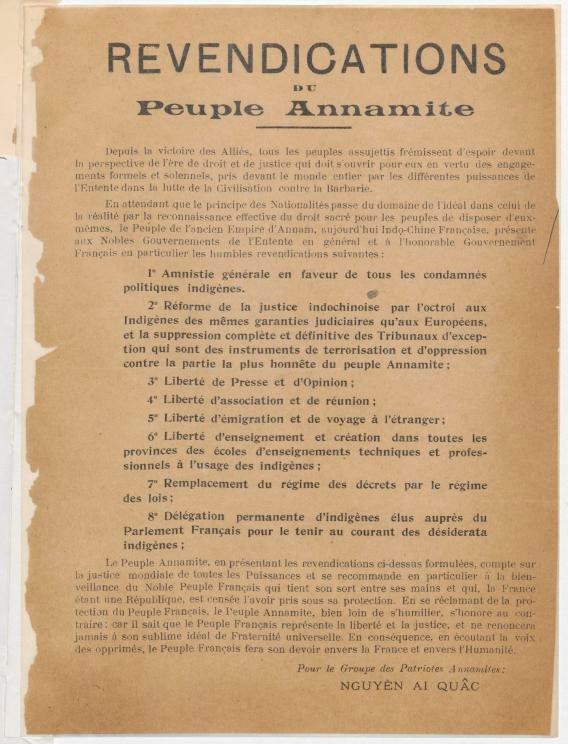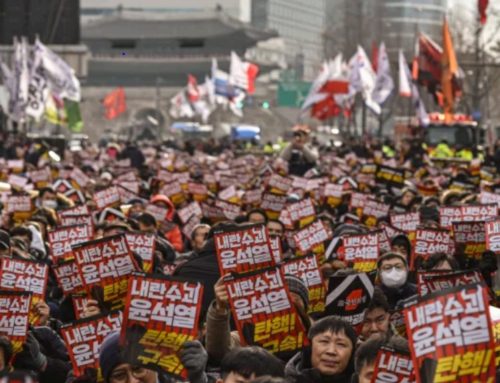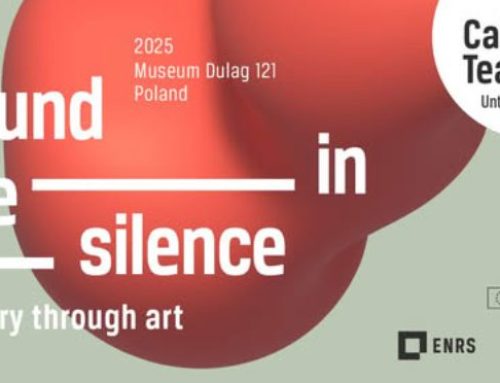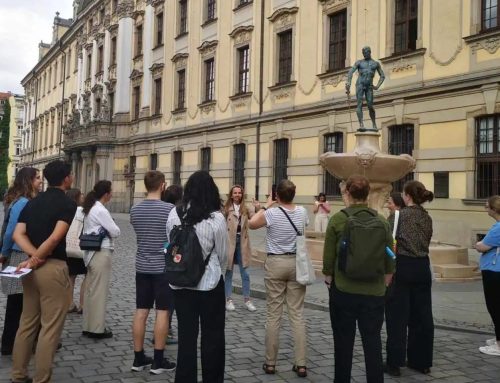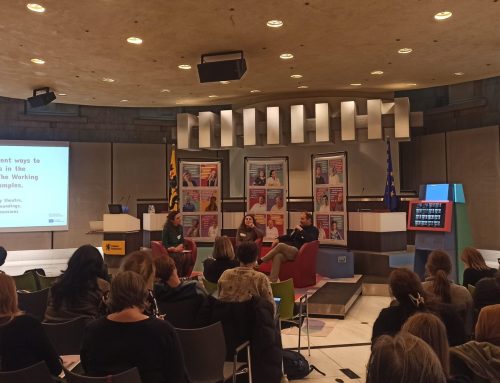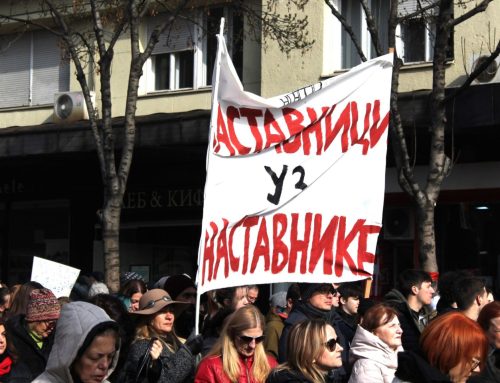On 18 June 1919 a young man working as a kitchen assistant at the Ritz Hotel in Paris sent a letter to US Secretary of State Lansing, who was a delegate at the Paris Peace Conference. He signed it, Nguyên Ái Quõc, a nom de plume meaning ‘Nguyên who loves his country’. His given name was Nguyên Sinh Cung, but we know him better as Hõ Chí Minh, leader of the Viêt Minh Independence movement that fought the occupying forces of Vichy France and Japan during World War Two and then fought French colonial forces from 1945 to 1954 followed by US forces from 1955 to 1975 (the Vietnam War).
He attached to the letter a petition titled The Claims of the Annamite People (the name used by the French colonial administration for the people who now live in Vietnam. At the time Annam was a protectorate within French-controlled Indochina. In that petition he and his associates – ‘The Group of Annamite Patriots’ – called for full civil rights for the Annamite people, a free press, the same rule of law as in France, an amnesty for Annamites imprisoned for their political activism, and a permanent Annamite delegation to the French National Assembly. Lansing replied that he would pass on the Note to President Wilson but no further action was taken. Hõ also sent copies of the petition to all the other political delegations at the Paris Conference. In the meantime a copy of the petition was published in L’Humanité, the French Socialist newspaper and copies were handed out on the streets in Paris. In 1920 Hõ Chí Minh was a founder member of the French Communist Party and then in 1923 left Paris to live in Moscow where he worked for the Comintern. In 1940 he acted as a link between Moscow and the Chinese Communists and then returned to Annam in 1941.
We can only speculate as to whether a more positive response from Wilson would have enabled the USA to avoid a costly and futile 20-year war in the second half of the 20th century.

